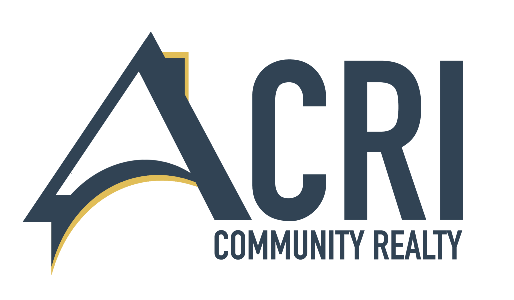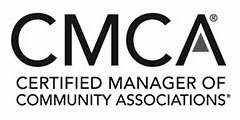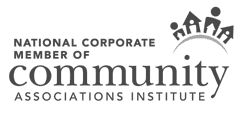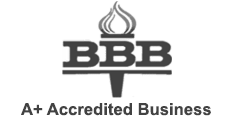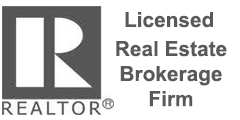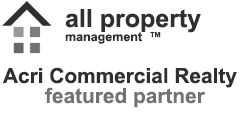Many associations employ either a community management company or a professional community manager to direct association operations.
How To Ensure Your HOA Gets The Best Return On Their Investment
It’s essential that you find a qualified manager with whom you can work productively. A professional association manager will help the board preserve assets, maintain property values, establish continuity, and provide assistance with operational and financial matters.
Professional Managers – Right Hand of the Board
The board sets policy and establishes a direction for the association, and the manager sees that the policies are implemented. Professional managers can be more than just an employee.
The right management company will work with you and build a strong business relationship that functions more like a great partnership.
Professional managers can assist boards with:
- Managing human resources: compliance with Equal Employment Opportunity Commission (EEOC) guidelines, payroll, reviews.
- Coordinating and supervising maintenance activities: landscaping, repairs and snow removal.
- Alerting the board when legal assistance is needed.
- Advising the board of regulatory issues and compliance requirements: fair housing procedures, fair debt collection practices.
- Coordinating member/board communication: preparing a newsletter, posting notice of meetings.
- Managing office operations: accounts payable and receivable, bookkeeping,
- Managing association finances: budgeting, collecting assessments, analyzing reserves, pursuing delinquencies.
- Working with accountants and auditors to maintain the association’s financial records.
- Working with insurance companies to file or settle claims.
- Working with state and regulatory agencies as an advocate for the community.
- Carrying out delegated officer duties.
- Preparing proposals and screening contractors.
How to Select and Find a Qualified Manager
The association’s size, amenities, facilities, and budget determine the type of management your association needs. Whether you select an on-site manager or work with a management company, it’s essential that you select a qualified community association management professional. You can identify qualified managers by the credentials that indicate their level of professionalism.
Networking
Not all experienced and capable community association managers will be listed in the directories. However, you can get recommendations on qualified managers by talking to industry professionals at local and national meetings of CAI (Community Associations Institute).
Invite Managers to Apply
Once you’ve identified several potential managers or management companies, invite them to submit a proposal.
Is a less expensive per door cost always better? That depends. Sure, you can save a few pennies and appear like you are saving money, but when you look closely, you may be in serious trouble.
Ignorance isn’t bliss for your community — or your neighbors — when it comes to Homeowner Association or Condominium Property Management Service Companies. Don’t be impressed by empty promises, websites or pretty PowerPoint presentations.
Be sure to find the answers to some key questions before signing a contract. The best way to to get the answers you need is by actually visiting and interviewing potential professional management companies at their business location.
Once your association selects a manager or management company, both the board and the manager will want a contract that specifies the terms of the agreement. For legal advice and contract recommendations, we recommend that you consult with an attorney. Here are some of the elements that you can expect to be included in your management contract.
The Management Contract
- The parties involved in the agreement
- Documents that govern the use of management services
- Amenities serviced by the management company
- Association management duties
- Manager’s communications responsibilities
- Compensation and Terms of the agreement
- Various definitions and guidelines for dealing with potential conflicts
The Critical Board Meetings
An association is a business that must conduct meetings of its “shareholders”— the owners or their elected representatives.
Community associations conduct several types of meetings, each addressing a particular need and fulfilling a purpose. Board meetings must be productive, orderly, free of disruptions, and open to members and residents unless an executive session is convened.
The Purpose of Board Meetings
- Set Agenda
- Review Plans
- Resolve Issues
- Listen to Homeowner Concerns
- Plan for the Future
- Vote on business discussed in executive session
Executive sessions may occur, however, the board should only convene in executive sessions to discuss pending litigation, personnel issues, or contract negotiations.
The Purpose of Annual Membership Meetings
- Elect officers
- Deliver committee reports to chairman
- Build community by bringing in neighbors feedback and show transparency
The Purpose of Special Meetings / Town Meetings
- Focus on one particular item of concerns
- Present sensitive or controversial matters to the homeowners
- Garner support for large projects or clarify unpopular rules and /or assessments
- Provide a structured venue in which residents can explore issues and express feedback
- Get resident feedback before the board takes place
- Reach consensus or resolve an ongoing issueGain valuable insights into the character and values of the homeowners
Board Meeting Processes
Board officials use tools and processes to assist in the organization of their meetings and to ensure they’re satisfying any meeting requirements.
The parliamentary procedure is the body of rules, ethics, and customs governing board meetings. The use of the parliamentary procedure can be as formal or basic as the association wishes, as long as it provides sufficient structure to keep a meeting orderly, fair, and productive.
The Purpose of the Parliamentary Procedure
- Staying on the agenda plan
- Discussing one subject at a time
- Giving each participant a chance to speak
- Speaking only on the issue being presented
- Speaking only when recognized by the chairman
- Addressing questions and comments to the chairman
- Deciding issues through motions, seconds, and votes
Associations must also meet several important criteria before any business can be conducted at a meeting. In particular, the notification of members, meeting a quorum, and recording of actions taken – the minutes.
Notifying Members – The law requires community associations to notify members of meetings—especially annual meetings. Keep notices brief, focused, and simple; issue them at the appropriate time in the proper manner.
Achieve a quorum – Each association’s governing documents or state law specifies how many members constitute a quorum. Quorum size can vary from one association to the next. Board officials must sure that a quorum is present before calling any meeting to order.
Record Meeting Results / Minutes – Minutes are the official record of decisions made at an association board or committee meeting.
Good meeting minutes will include:
- Type of meeting: board, committee, regular, special
- Association name time, date, and place
- Attendees’ names
- Approval or correction of the previous minutes
- Officer and committee reports
- Motions and their outcomes—approved, denied, or tabled
- Adjournment time
The first step in proactively preserving your HOA values is employing a sound and experienced professional management company who really know the intricacies of an HOA operation. Your return on the investment you make with your professional property management company will be the increase in your property value.
“Our mission is to help your community not only succeed, but to create and increase property values while you enjoy the benefits of community life.”
